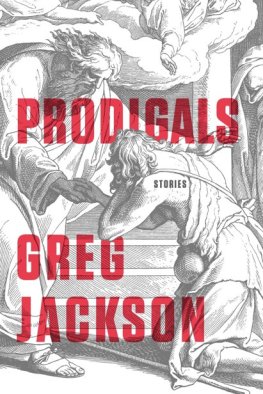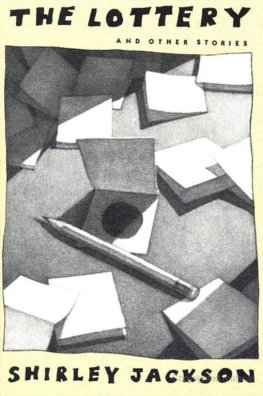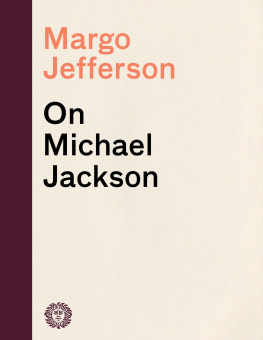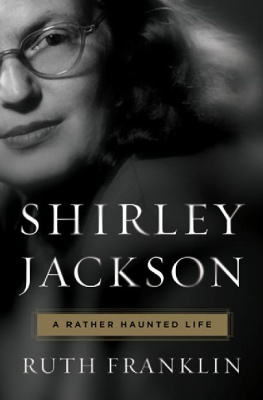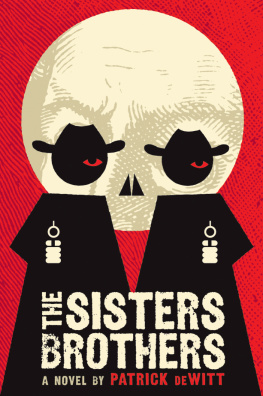Greg Jackson
Prodigals: Stories
For my parents, Katherine and Tony
I am always going home, always to my fathers house.
Novalis
First we did molly, lay on the thick carpet touching the pile, ourselves, one another. We did edibles, bathed dumbly in the sun, took naps on suede couches. Later we did blow off the keys to ecologically responsible cars. We powdered glass tables and bathroom fixtures. We ate mushrooms ate and waited, ate and waited. Then we just ate, emptied Ziplocs into our mouths like chip bags. We smoked cigarettes and joints, sucked on lozenges lacquered in hash oil. We tried one anothers benzos and antivirals, Restoril, Avodart, Yaz, and Dexedrine, looking for contraindications. We ate well: cassoulets, steak frites, squid-ink risotto with porcini, spices from Andhra Pradesh, Kyoto, Antwerp. Of course we drank: pure agaves, rye whiskeys, St-Germain, old Scotch. We spent our hot December afternoons next to the custom saltwater pool or below the parasols of palm fronds, waiting, I suppose, to feel at peace, to baptize our minds in an enforced nullity, to return to a place from which we could begin again.
This was a few years ago in Palm Springs, at the end of a very forgettable year.
* * *
When I say that I was visiting old friends, friends from whom my life and my sense of life had diverged, I am not trying to set myself apart. Marta and Eli had lived in L.A. for a number of years, long enough, I suppose, that whatever logic married immediate impulse to near-term goal to life plan to identity had slipped below conscious awareness and become simply a part of them. I was by no means innocent, either, of the slow supplanting drift by which the means to our most cherished and noble ends become the ends themselves so that, for instance, writing something to change the world becomes writing something that matters to you becomes publishing something halfway decent becomes writing something publishable; or, to give another arbitrary example, finding everlasting love becomes finding somewhat lasting love becomes finding a reasonable mix of tolerance and lust becomes finding a sensible social teammate. And of course with each recalibration you think not that you are trading down or betraying your values but that you are becoming more mature. And maybe you are. Maybe you are doing the best you can. But what is true is that one day you wake up dead.
In any case I was writing a book, one that I hoped would make my contemporaries see how petty and misguided their lives were, how worthwhile my sacrifices, how refreshing my repudiations, how heroic my stubbornness, et cetera. Eli and Marta were trying to have a baby. They would spend the ensuing year attempting to get pregnant, and eventually they would, and later this baby, and their second baby, would grant them some reprieve from the confusion we were all afflicted by in those years. But before they had their baby, during the week when this story takes place, they had decided to do every last thing that a baby precludes, every last irresponsible thing, so as, I guess, to be able to say, Yes, I have lived, I have done the things that mean you have lived, brushed shoulders with the lurid genie Dionysus, who counsels recklessness and abandon, decadence, self-destruction, and waste. The Baby Bucket List, they were calling it.
And I was game. Although I was not planning to have a child anytime soon, I thought we could all stand to chemically unfasten our fingers from their death grips on our careers and wardrobes and topiarian social lives and ne plus ultra vacations in tropical Asia. The words we and our are a bit figurative here, as I remain unsure whether I rounded out our groups eclecticism or stood in contrast to it. But we were, in any case, a particular sort of modern hustler: filmmakers and writers (screen, Web, magazine) who periodically worked as narrative consultants on ad campaigns, sustainability experts, PR lifers, designers or design consultants, Commonwealth transplants living in the borderless monoculture of global corporatism, social entrepreneurs, and that strange species of human being who has invented an app. We rubbed elbows with media moguls and Hollywood actors and the lesser-known but still powerful strata that include producers and directors and COOs and the half-famous relatives of the more famous. We preferred vintage cars to new but drove hybrids (because the environment), took shopping to be an urbane witticism, and were conscious enough of our materialism to mock it. We listened to U2 and Morrissey and Kylie Minogue post-ironically, which is not to say, exactly, sincerely. We donated to charity, served on the boards of not-for-profits, and shepherded socially responsible enterprises for work. We were not bad people, we thought. Not the best, a bit spoiled, maybe, but pleasant, insouciantly decent. We paid a tax on the lives we lived in order to say in public, I have sacrificed, tithed, given back. A system of pre-Lutheran indulgences. Of carbon offsets. A green-washing of our sins. We were affiliated. We had access.
I was by far the poorest of our group. There was no doubt about it, although I was not poor for principled reasons. I am not sure why I was so poor. Laziness, perhaps. I didnt have much energy or imagination when it came to monetizing my talents, such as they were. And I think, to be honest, I had a bad conscience about getting paid to do what I loved and what seemed, on the face of it, self-indulgent. So in the Palm Springs house that week, where I stayed on need-blind sufferance, I had the dual consciousness of a Voltaire in the court of Frederick the Great or the Marxists who brood through high-society parties in Wyndham Lewis novels, which is to say I partook, mooched, sponged, and felt myself apart and nonimplicated.
From the start I had been set up as the counterpart to Lily, a pretty and neurotic executive-in-training who was also not there as half of a couple. Lily had brought a tote bag for her cosmetics, which numbered in the dozens and included machines I was not familiar with. Like all the women in the house, she had exceptional hair. Her hair had the tattered elegance of a Rolling Stone cover models and I decided early on that one of my goals for the week would be to sleep with Lily, although this was less a decision, really, than the final figure in some back-of-the-envelope biological math.
Lily was in the habit of always needing things she didnt have: water, iced tea, spray-on sunscreen, her phone, Kindle, iPad, a hand, advice, Chablis. I remark on this because, given that my position in the group was as a secular boyfriend of sorts to Lily, it often fell to me to fetch her things or to hold things for her while she did stuff like pee. But I also think that her constant fidgeting neediness captured something we all felt: the ever-present urge to tweak or adjust the experience to make it a touch more perfect. Can you just hold this? Lily would say, or Can you just do my back? or Can you just come look at something? and I slowly understood what it is to be a man for a certain type of high-strung, successful, and thin woman: you are an avatar of capability, like a living Swiss Army knife. And when the child lock on her car door stuck, or the cocktail mixer fused shut, or a toilet ceased to flush properly, or we needed to adjust the propane supply to the grill or glass fire, I was the one called on. And I fixed things, and it felt good. And maybe anyone could have fixed them, maybe Lily only asked to flatter me, to give me a sense of purpose in a modern economy that had creatively destroyed men, but it worked, it allowed me to feel masculine and useful, and I experienced an uneasy gratification that Lily and I could confirm for each other this two-dimensional idea of who we were, who our genders made us, even as we recognized how stupid and outdated this idea was.

